BLOGS BY:
Defrazzle Me
Exhausted and then some...

Understanding Emotional Well-Being — and 5 Simple Ways to Boost It
Introduction:
Emotional well-being isn’t just about feeling happy — it’s the ability to navigate life’s ups and downs with resilience, self-awareness, and a sense of purpose.
Neuroscientists state that our wellbeing is deeply tied to how well our brain regulates stress, processes emotions, and maintains social connections. Hormonal health experts also point out that fluctuations in hormones like cortisol, estrogen, and oxytocin strongly influence our mood and emotional balance.
Key factors that shape emotional well-being include:
Neuroplasticity: Our brain’s ability to adapt and rewire itself through new experiences and habits.
Hormonal regulation: Balanced hormones help stabilize mood and emotional reactions.
Social bonds and connectivity: Close, supportive relationships act as emotional anchors.
Purpose and meaning: Feeling connected to a greater purpose boosts resilience.
Stress response: How quickly we return to baseline after facing stress is crucial for long-term emotional health.

So, I hear you scream, how can you start improving your emotional well-being today? Here are five easy, science-backed strategies:
Practice Deep Breathing
It is essential to emphasize slow, deliberate exhalations (longer than your inhalations) as they can rapidly calm the nervous system. Try 5 minutes of “physiological sighs” — two short inhales through the nose, one long exhale through the mouth — to reduce stress instantly.
Prioritise Morning Sunlight
Exposing your eyes (no sunglasses) to natural sunlight within the first hour of waking stabilizes your cortisol rhythm. Huberman’s research shows this simple habit boosts mood, energy, and emotional resilience throughout the day.
Strengthen Social Connections
According to studies on oxytocin (the “bonding hormone”), meaningful social interactions lower stress hormones and elevate emotional well-being. A quick phone call with a friend or shared laughter strengthens these bonds.
Move Your Body Daily
Movement isn’t just about fitness. Hormone specialists note that exercise regulates cortisol, serotonin, and endorphins — all crucial for emotional balance. Even 20 minutes of brisk walking can significantly improve your mood and cognitive function.
Reframe Negative Thoughts
Cognitive reappraisal — actively shifting how you view a situation — strengthens prefrontal cortex pathways and helps manage emotions. Regularly practicing reframing can literally rewire the brain for more emotional resilience over time.
Emotional well-being is not a mystery — it’s a skill set we can build with small daily actions. A few minutes of sunlight, deep breaths, movement, connection, and mindset work can create powerful shifts in how you feel, think, and thrive.
Carry on warriors,
M xx
Take the first step towards recovery
and book a free consultation with
Defrazzle Me today.
Let's Connect




